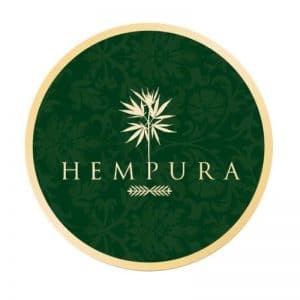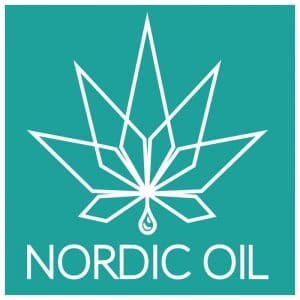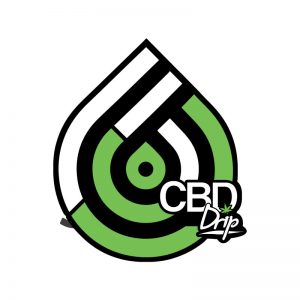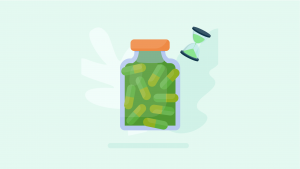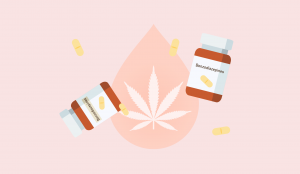
In 2001, Portugal decriminalized all drugs (including cannabis) due to an opioid overdose crisis and the highest HIV rate among people using drugs in Europe. The decriminalization program replaced severe punishments with fines — individuals caught with insignificant amounts of any drug are either fined or sent to treatment on demand and harm reduction services.
When it came to hemp products, CBD wasn’t explicitly banned and was legal over the counter as a food supplement. However, in 2018, Portugal banned all CBD food products due to the European Union’s novel food regulation.
The regulation considers extracts of Cannabis sativa L. and derived products containing CBD to be novel foods as there’s no history of significant consumption before May 15, 1997.
Following the legal change in 2018, Portugal established its medical cannabis laws and made CBD a prescription-only product. The new law is still chaotic, and buying CBD in Portugal is not that easy.
This article will guide you through the local CBD regulations and inform you on brands that operate in Portugal. You’ll also find some useful tips for buying high-quality CBD.
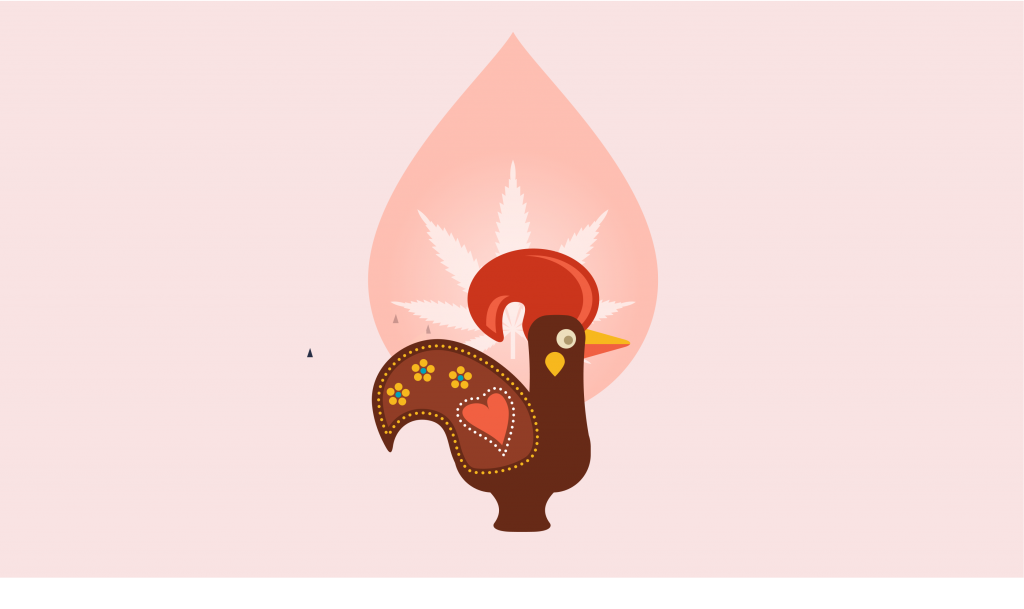
Best CBD Oil in Portugal:
| Number | Product | Total CBD | Potency | Cost per mg CBD | Link |
|---|---|---|---|---|---|
|
1 |

Nordic Oil Full-Spectrum CBD Oil (Europe) |
500 – 2000 mg |
50 – 200 mg/mL |
€0.08 – €0.09 |
|
|
2 |

Hemp Bombs CBD Oil |
300 – 4000 mg |
10 – 133.3 mg/mL |
$0.07 – $0.17 |
|
|
3 |
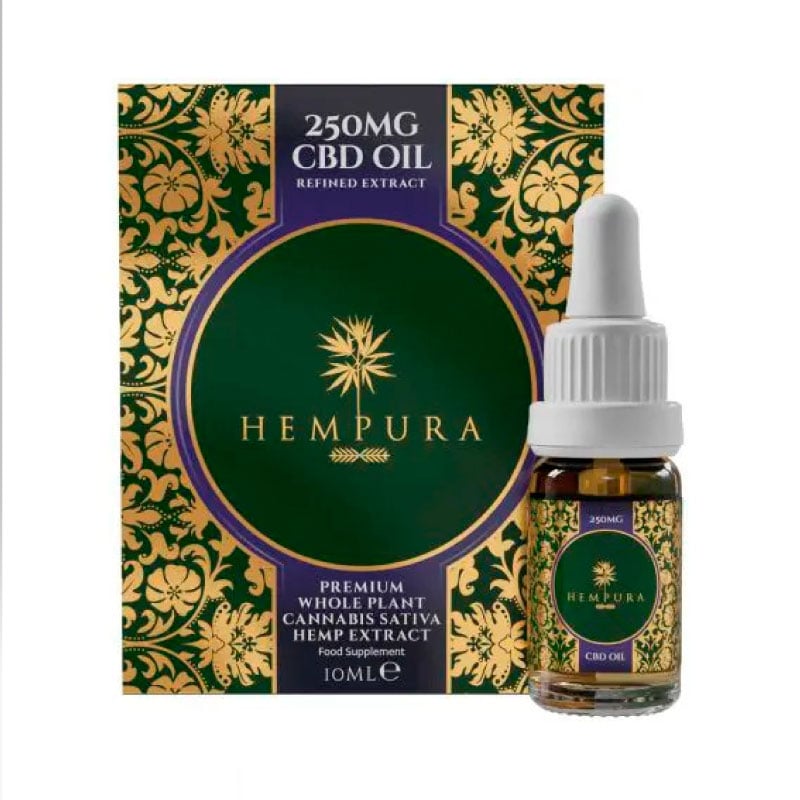
Hempura Broad-Spectrum Refined Extract |
250 – 1000 mg |
25 – 100 mg/mL |
£0.06 – £0.08 |
|
|
4 |

Blue Moon Hemp TruBlu CBD Tincture |
250 – 3000 mg |
4.14 – 100 mg/mL |
$0.07 – $0.15 |
|
|
5 |

Formula Swiss CBD Oil |
300 – 2500 mg |
30 – 250 mg/mL |
€0.06 – €0.08 |
Summary: Buying CBD in Portugal
- Portugal decriminalized all drugs in 2001
- CBD in Portugal is available only via prescription
- Sativex is the only available cannabis and CBD-based medicine in pharmacies
- Personal cannabis cultivation for medical use is not allowed
- You can import CBD only after you obtain an importation certificate from the National Authority for Medicines and Health Products (Infarmed)
- You can use a mail forwarding service to purchase CBD from a brand that won’t ship to Portugal directly
Is CBD Legal in Portugal?
Until mid-2018, you could buy CBD in a physical store as a food supplement. Today, CBD in Portugal is allowed only for medicinal use via a doctor’s prescription.
Portugal decriminalized all drugs back in 2001, including cannabis.
Ordinance 94/96 regulates the maximum limit on allowed daily doses of recreational cannabis as it follows:
- Flowers and leaves — 2.5 g (average concentration of 2% THC)
- Resin — 0.5 g (average concentration of 10% THC)
- Oil — 0.25 g (average concentration of 20% THC)
However, medical cannabis in Portugal was legalized much later — in 2018. After the amendment of Law 33/2018, CBD was classified as a medical-only product that requires a doctor’s prescription.
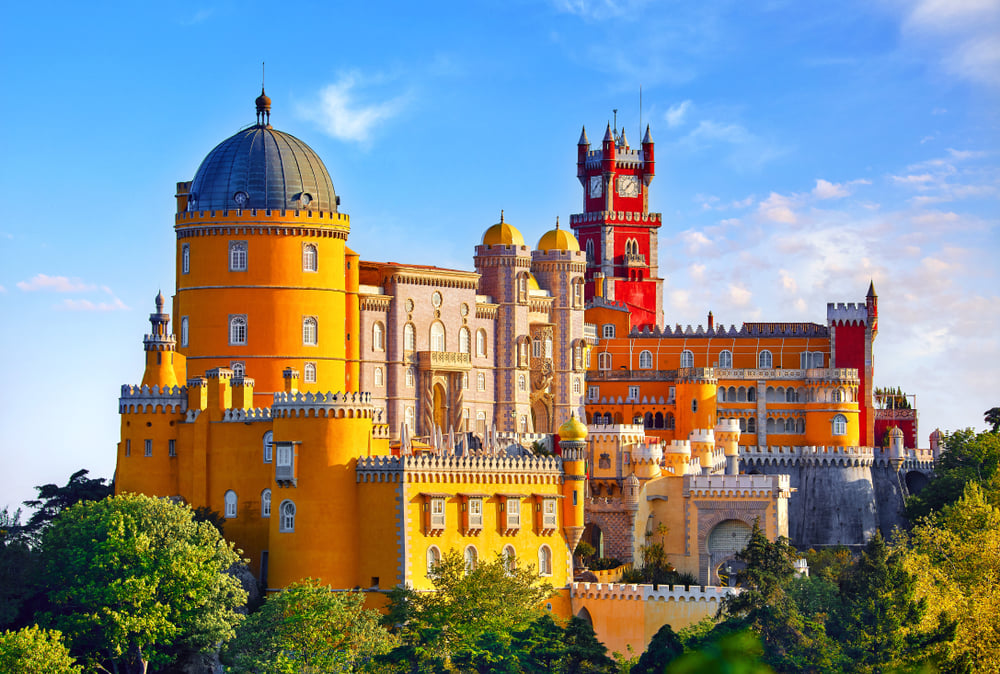
A Brief History of Cannabis Laws in Portugal
Romans brought cannabis in Portugal around the 2nd century BC, although it was the Moors who spread the cannabis cultivation and its various uses (including recreational marijuana use) in the 8th century.
In ancient times, the Portuguese used cannabis for making tea, twines, nets, fishing lines, cords, ladders, bridges, shoes, clothes, shields, and helmets.
When Portugal became a colonial power in the 15th century, its naval units encountered cannabis in Africa and Asia. At the beginning of the 16th century, the Portuguese seized Goa, where they learned about Indian cannabis customs, trade, and its many uses. The naval units used hemp to make rigging and sails for their ships, making hemp known as the plant that helped in the creation of Portugal’s conquistador identity.
Portuguese colonizers would bring cannabis to their new colonies in South America, introducing the plant to the indigenous people and educating them on how to grow it.
When it comes to domestic use, the crop was essential to Portuguese rural people. Hemp was one of the three pillars of their economic survival, along with cereals and vines.
In 1640, the Portuguese maritime fleet suffered damage as a result of the Restoration War with Spain. To restore the naval fleet, King John IV ordered the creation of the Royal Linen and Hemp Factory to increase hemp production.
By the 18th century, cannabis cultivation was widely spread and used for food (including its oil), medicine (for the treatment of cough, jaundice, and gonorrhea), and its psychoactive effects.
In 1971, Portugal banned cannabis (including hemp) after signing the UN’s Convention on Psychotropic Substances. This decision was revoked after the European Union enacted its regulations for granting aid for flax and hemp in 1971 and 1989, respectively.
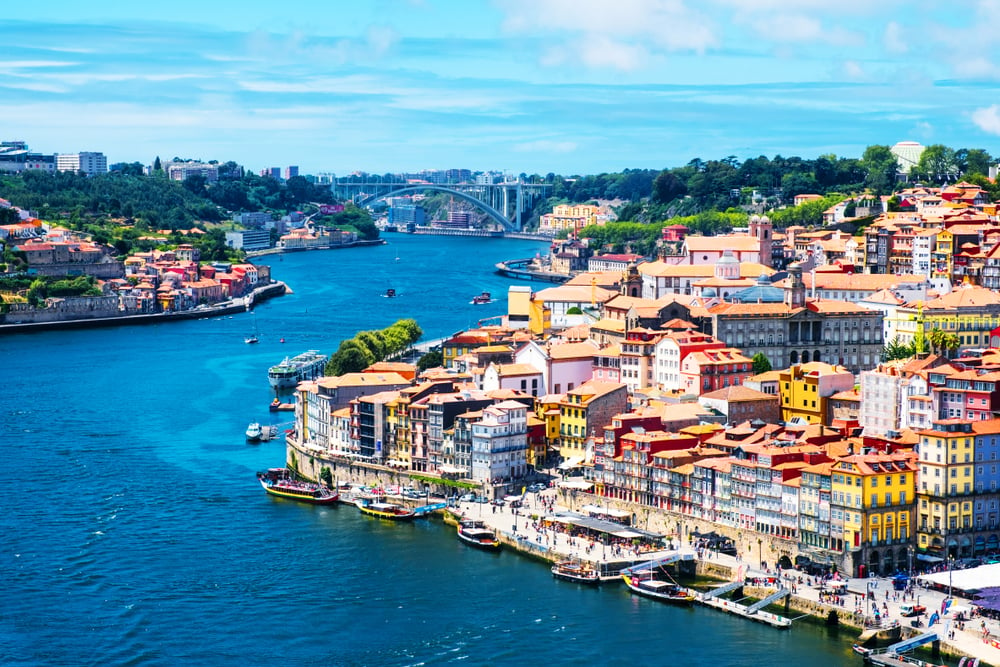
How is Hemp Cultivation Regulated in Portugal?
Portugal’s hemp cultivation tradition continues — Regulatory Decree No. 23/99 allows hemp grown for industrial purposes (fiber and seeds for food). To be considered legal, the crop must not contain more than 0.2% THC. The General Directorate for Food and Veterinary (DGAV) controls the cultivation of hemp for fiber and seeds.
Individuals and companies interested in hemp cultivation and processing for medical and scientific purposes should contact Infarmed.
Personal cultivation of cannabis for medical use is not permitted — this includes both hemp and marijuana.
Portugal has set a clear distinction between hemp and marijuana.
While both plants are cannabis, their phytochemical makeup is different. Both hemp and marijuana produce CBD but differ in the THC content. Tetrahydrocannabinol or THC is the primary psychoactive compound in cannabis. Marijuana contains higher amounts of THC, while hemp contains only small traces.
1. Marijuana
Marijuana is any cannabis plant with a THC content higher than 0.2%. The concentration of THC in marijuana plants can go up to 30%, causing a psychoactive effect on marijuana users.
2. Hemp
Hemp is a cannabis plant that doesn’t produce significant amounts of THC. In Portugal, hemp may not contain more than 0.2% THC, and hemp seeds destined for cultivation must be certified under the European Union’s directive on the marketing of seed of oil and fiber plants.
Due to its low THC concentration, hemp has no psychoactive effect when consumed.
Medical Cannabis in Portugal
CBD falls under medical cannabis regulations. Portugal doesn’t have a special medical cannabis program. The law allows licensed doctors to prescribe medicinal cannabis only when traditional medicines don’t work.
If you’re an eligible patient, you can obtain a doctor’s prescription and buy medical cannabis from a licensed pharmacy. If you want to import CBD, you’ll need an importation certificate from Infarmed.
While you don’t need a special medical cannabis card, you can use only a non-refillable prescription.
You’re an eligible patient if you have one of the following medical conditions:
- Spasticity associated with multiple sclerosis or spinal cord injuries
- Nausea, vomiting (chemotherapy, radiotherapy and combination therapy for HIV and hepatitis C)
- Appetite loss due to cancer treatment or AIDS
- Chronic pain
- Tourette syndrome
- Epilepsy and treatment of severe childhood convulsive disorders (Dravet and Lennox-Gastaut)
- Treatment-resistant glaucoma
How to Buy CBD Products in Portugal
The medical cannabis law is not fully regulated, and legal matters remain up in the air. Patients complain about the new regulation, mainly because before its enactment, CBD was readily-available in local shops.
CBD is available only in licensed pharmacies, which doesn’t leave you many options. You can’t buy it legally over the counter unless you obtain a prescription from your doctor.
Another nuisance is that despite the list of qualifying medical conditions, the limited choice of CBD products reduces the eligibility only to multiple sclerosis patients. Currently, the only hemp CBD-based medicine available in pharmacies is Sativex.
Buying CBD Online in Portugal
Your other option would be to buy CBD online, but this doesn’t change the medical-only rule — you must be authorized to import CBD and have a doctor’s prescription.
However, if you can obtain a prescription and authorization certificate, you could shop for CBD online and choose the brand you want.
If you want to buy CBD in a foreign country, you can use a mail forwarding service that will deliver the package right to your door. We’ll explain how to register for a mail forwarding service right after we share some tips on buying high-quality CBD.

Tips on Buying High-Quality CBD Products in Portugal
While your in-store option is reduced only to Sativex, online shopping offers you many choices. Once you get your permit, you can start looking for companies and products. Before you make your purchase, make sure the CBD product:
- Is the product lab-tested by a third party? — A lab test can prove that the CBD product doesn’t contain any toxic and harmful substances.
- Does the product make absurd health claims? — Many companies label their products as cure-all preparations which is misleading and a red flag for a poor-quality CBD company.
- Is the product labeled as a food product? — CBD food and food supplements are not legal in Portugal, and customs could seize your package.
NOTE: Infarmed hasn’t clarified which CBD products can be imported.
How Mail Forwarding Works
A mail forwarding company can help you get your product safely to your door when you’re buying from a brand that doesn’t ship to your country.
To use a mail forwarding company’s service, go to their website and register for an account. Once your account is set, you will receive a local address that you can use to make online purchases.
The local address can be in the UK or the US, depending on where you’re shopping for CBD — North America or Europe.
If the brand you want to buy CBD from is in Europe, try using Skypax’s service. If you prefer to place a US order, you can use Shipito’s mail forwarding service.
How Do I Use the Local Address?
Choose the CBD brand you want to buy from and place your online order. In the address section, enter the local address you were provided with.
Don’t worry; you’ll still get your package at your doorstep! Once the product is at the local address, staff from the mail forwarding company will change the stamps and forward your parcel to your home address.
NOTE: Don’t forget that you can import CBD ONLY after you obtain a doctor’s prescription and an authorization certificate from Infarmed.
Despite drugs being decriminalized in Portugal, import of CBD products is not explicitly allowed without an Infarmed permit, meaning your product could be seized at customs.
Shipito Mail Forwarding Rates:
| Tier of Service | Sign Up Fee | Annual Fee | Average Shipping Fee |
| Free Membership (If you only need the service every once in a while) | $3 USD | $0 | $30 USD |
| Premium Membership (If you order CBD frequently and want protection on your packages) | $2 USD | $60 | $30 USD |
CBD Brands That Ship To Portugal
CBD Brands That Ship To Portugal
Nordic Oil
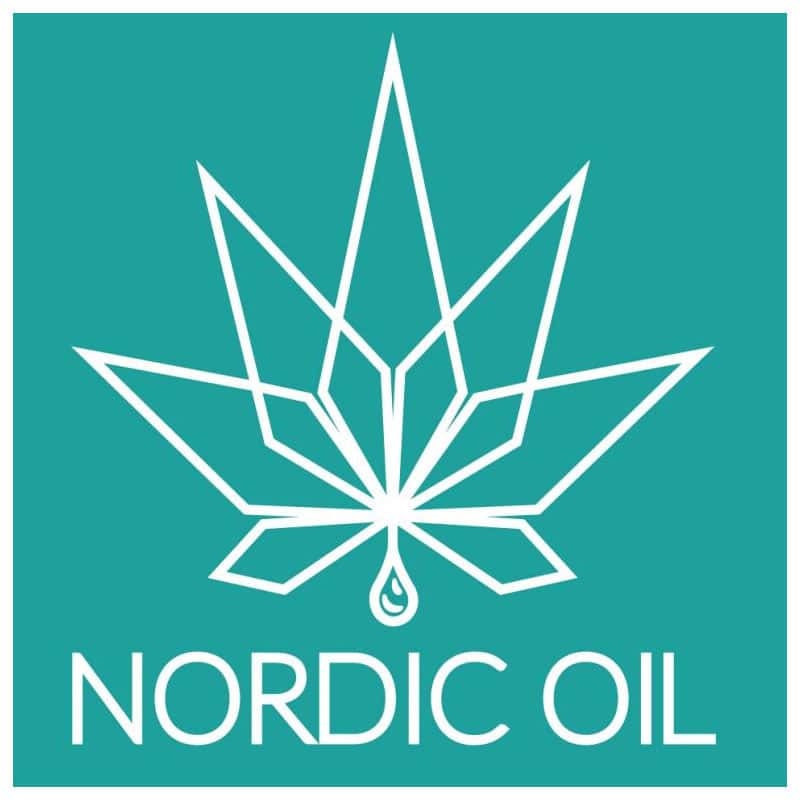
Endoca

Hemp Bombs

Hempura
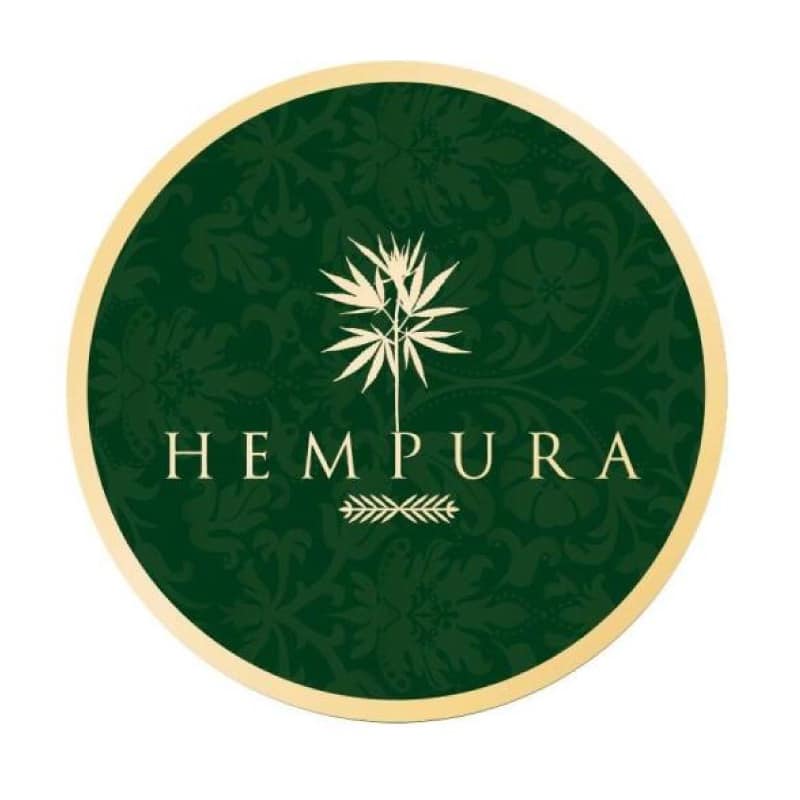
Formula Swiss

CBD Drip
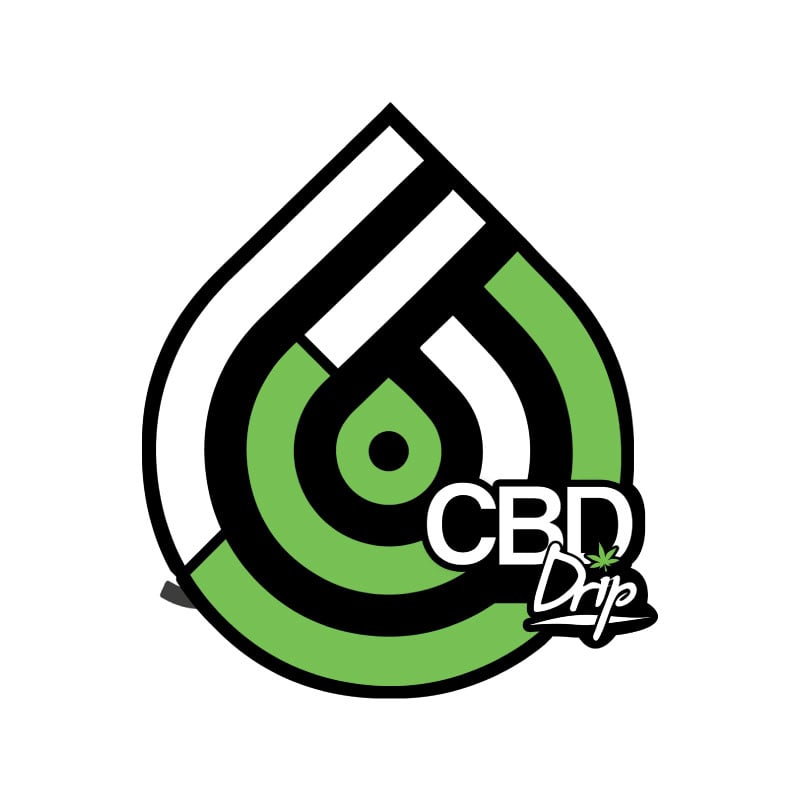
Blue Moon Hemp

Final Notes on Buying CBD in Portugal
Portugal recently tightened its laws after the EU introduced the novel food regulation.
Buying CBD in Portugal can be frustrating, especially if you’ve purchased CBD products when it was legal over the counter as a food supplement. It used to be much easier to buy CBD products in Portugal.
Today, you can buy CBD only with a doctor’s prescription, or import it if Infarmed provides you with an import authorization.
The positive thing about buying CBD is that, once you’re allowed to import it, you can choose from a variety of products online and get your product delivered at your address.
Sign up to our newsletter below to stay informed as CBD-related laws continue to change in Portugal over the next couple of years.

